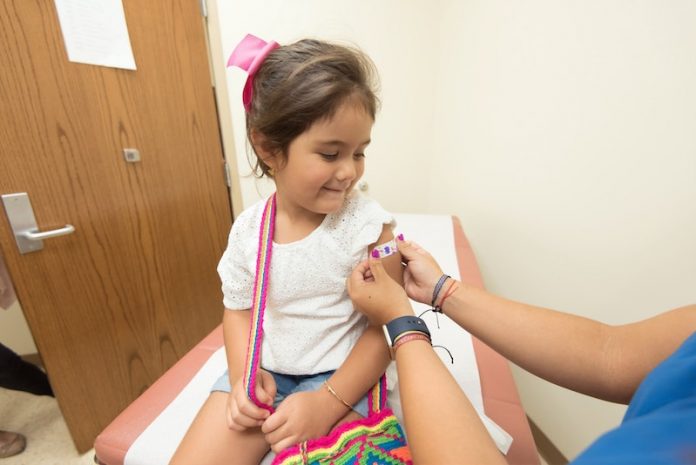
In a new study from the New York State Department of Health, researchers found that Pfizer’s COVID vaccine is far less powerful at preventing infection among children ages 5 to 11 than teens.
The vaccine—the only one authorized for that age group in the United States—does prevent severe illness in young children.
But it offers almost no protection against coronavirus infection, even within a month after full immunization.
In the study, the team analyzed data from 852,384 fully vaccinated children aged 12 to 17 and 365,502 fully vaccinated children aged 5 to 11 between the middle of December and the end of January.
They found the vaccine’s effectiveness against hospitalization declined to 73 percent from 85 percent in older children.
In the younger children, effectiveness dropped to 48 percent from 100 percent.
The vaccine’s performance against infection was even worse: It dropped to 51 percent from 66 percent in older children, while it plummeted to 12 percent from 68 percent in younger children.
The team found the numbers change dramatically between ages 11 and 12. During the week ending Jan. 30, the vaccine’s effectiveness against infection was 67 percent in 12-year-olds, but just 11 percent in 11-year-old children.
The team says one reason may be that younger children only receive one-third of the dose given to older children and adults.
Previous research has shown that the Pfizer vaccine performed poorly in children aged 2 to 4, who received an even smaller dose.
Despite the results, the researchers still recommend the shot for children, because the vaccine continues to guard against severe disease in this group.
If you care about COVID, please read studies about drugs that may reduce COVID-19 vaccine effectiveness, and CBD from cannabis may inhibit COVID-19 infection.
For more information about Covid, please see recent studies about vitamin D deficiency linked to severe COVID-19 and death, and results showing this hormone may prevent COVID-19 death in older women.
The study was posted on medRxiv and was conducted by Eli Rosenberg et al.
Copyright © 2022 Knowridge Science Report. All rights reserved.



